Sundays
Sexagon: Love Triangles (and Other Shapes) in American Melodrama
Programmed by Tien-Tien Jong
Essay by Tien-Tien Jong
Love affairs have long been central to American melodrama, that most magnificent Hollywood genre of social downfalls and redemption, which alternately guards against and celebrates the great expressive potential of desire. In these triangular romance narratives, love sometimes looks like driving self-destruction, but also sometimes can look an awful lot like freedom--it is the great unstructured feeling, portrayed at once as an avenue for enlightenment and personal growth, as well as another means for interpersonal brutality and control. Our heroes and heroines are made to feel the consequences of their passions and vulnerabilities within conformist societies intent on policing unconventional desires.
"All of a sudden, I felt desperate sitting in my own living room. I felt as though I were trapped in a tomb of my own making." This amazingly cynical and superb line of dialogue from melodrama master Douglas Sirk's There's Always Tomorrow, which likens the suburban family room to a tomb, subverts both the cheery aphorism of the film's title and the monolithic cultural values of the decade in which it was made, the 1950s. Sirk's follow-up film (recognized today as his masterpiece and also released in 1956), Written on the Wind, is set on a more epic scale, chronicling the sexual frustrations and madness of a Texas oil dynasty, but similarly exposes the nuclear family as a system of emotional exploitation founded on the hypocrisy and selfishness of individual members.
Melodrama is best understood as both a genre and a style, in which music and mise-en-scene work together with the narrative to articulate feelings and subtext. Sirk thus described his strategy in the making of Written on the Wind: "I used deep focus lenses which have the effect of giving a harshness to the objects and a kind of enameled, hard surface to the colors. I wanted to bring out the inner violence, the energy of the characters which is all inside them and can't break through." Stylistically defiant in their sense of heightened reality and the intensity of emotions depicted on-screen, these films convey the horrors of love and sexual awakening in a small town, while invoking the power of art and beauty to compensate for some of the bitter inadequacies of life.
By working through themes of sexual deviancy, gender non-conformity, and misdirected longing and desire, American melodrama is open to simultaneously regressive and progressive readings, and the dynamism and power of the genre lies precisely in this ideological uncertainty. The delightful and "Divine" Polyester, John Waters' parody of the classic melodrama and its complicated triangular (in this case, positively hexagonal!) narratives of desire, disrupts the genre's balancing act between sadism and sympathy for outrageous effects, encouraging strange new modes of spectatorial pleasure. In so doing, Waters pushes the genre in directions which it doesn't necessarily want to go and amplifies its aspects of wish-fulfillment, fantasy, excess, and liberating potential.
4/3/2016 @ 7:15 PM
Blonde Venus
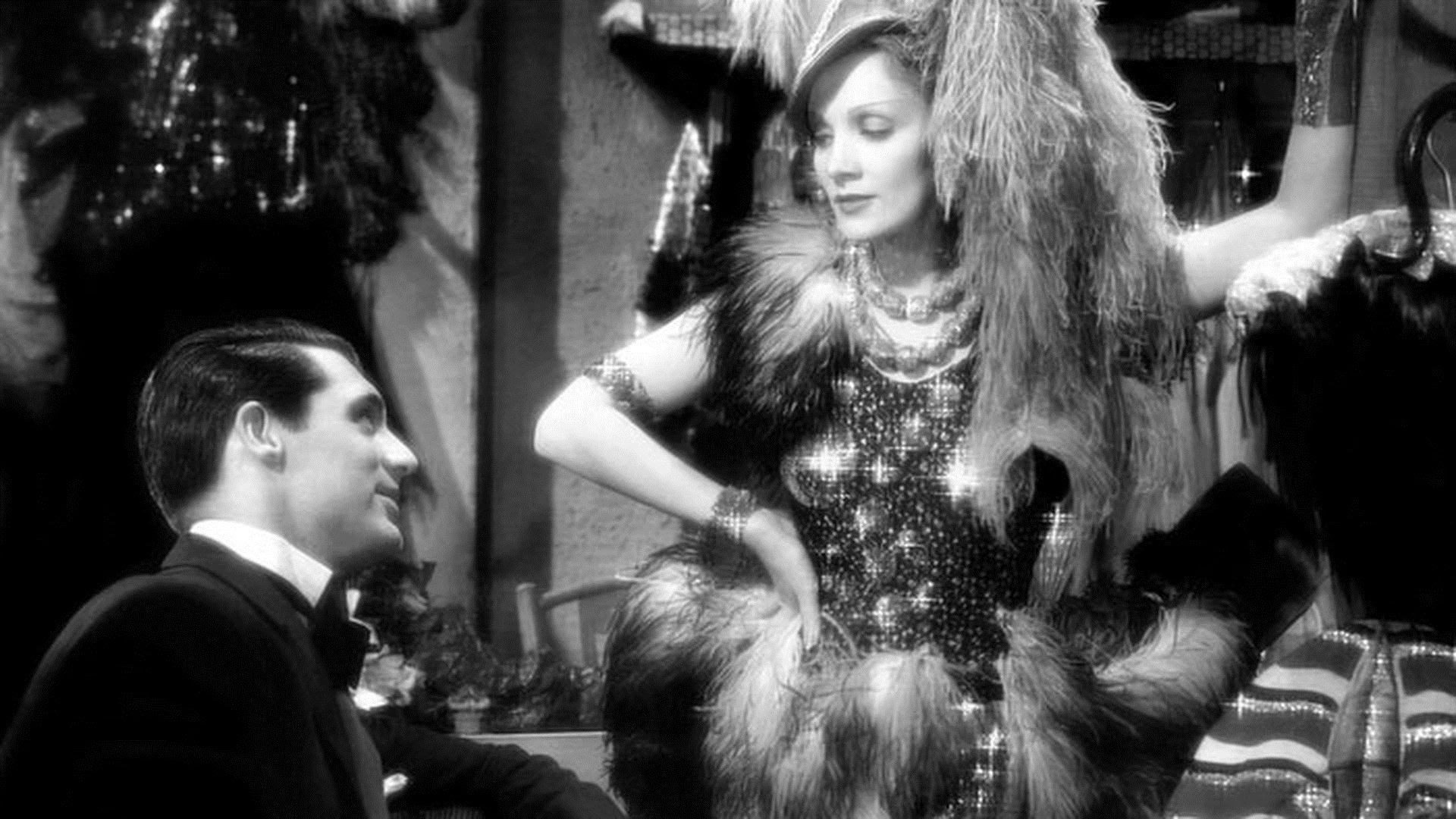
(Josef von Sternberg, 1932) · This pre-Code melodrama is one of the most surreal and dreamlike to ever emerge from the genre. When her husband falls ill, Helen (Marlene Dietrich) makes ends meet in a seedy cabaret. There she becomes the kept woman of a rich playboy (Cary Grant)--but can she also be a wife and mother? Featuring the unnerving "Hot Voodoo" nightclub dance sequence (in which Dietrich dances in a gorilla suit!), this visually cluttered film plays like a midnight dream.
runtime: 93 min format: 35mm
4/10/2016 @ 7:00 PM
Back Street
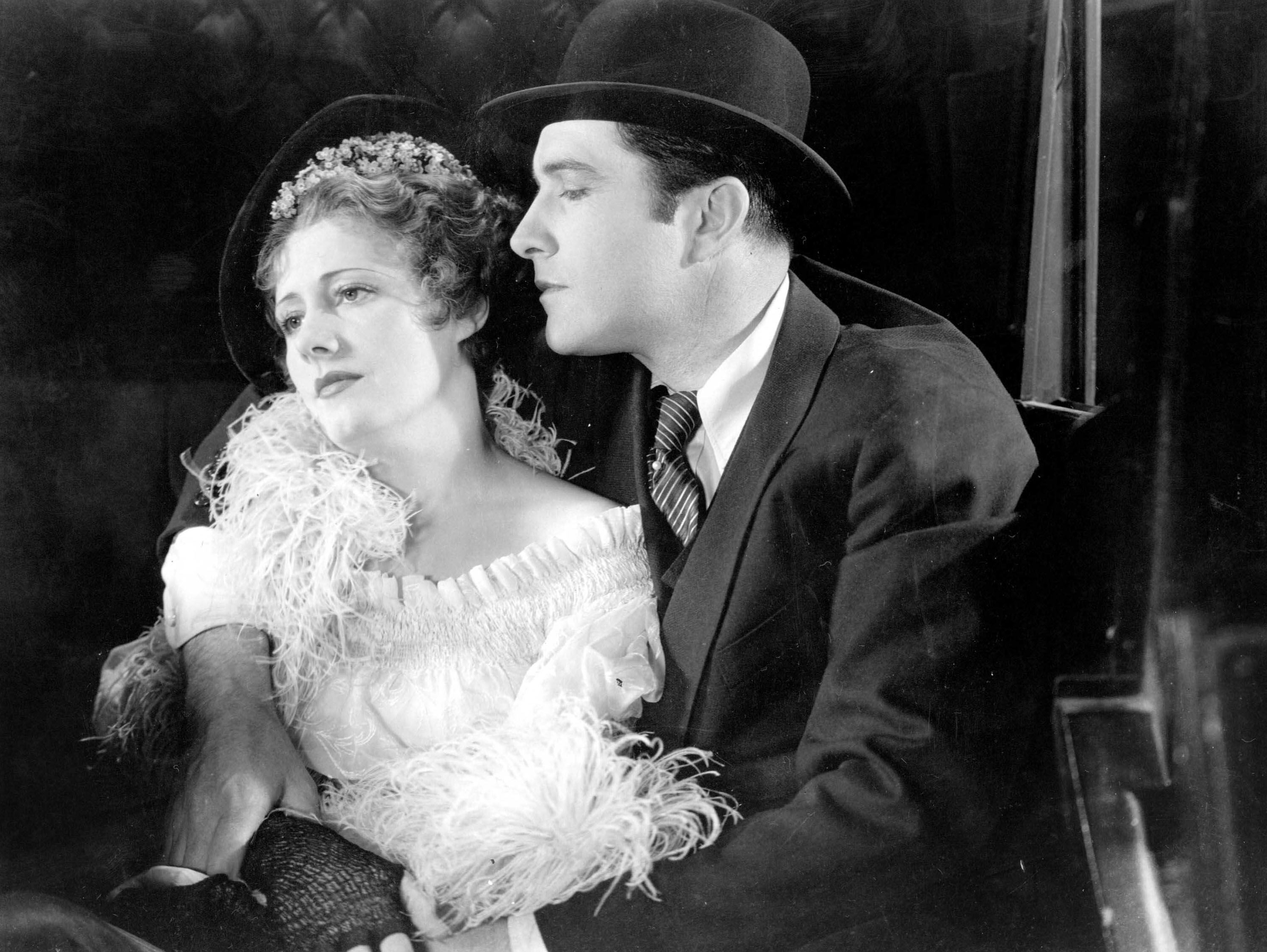
(John Stahl, 1932) · In this striking portrait of a fragmentary, ill-fated affair, Irene Dunne and John Boles star as lovers separated by social propriety and class differences over the course of a lifetime. When shopgirl Rae falls for wealthy financier Walter Saxel, who is promised to another woman, she must find an uneasy balance between true love and "back street" romance. Stahl's melodrama is an eloquent expression of the genre's compensation for bleak reality with romanticism.
runtime: 93 min format: DCP
4/17/2016 @ 7:00 PM
True Heart Susie
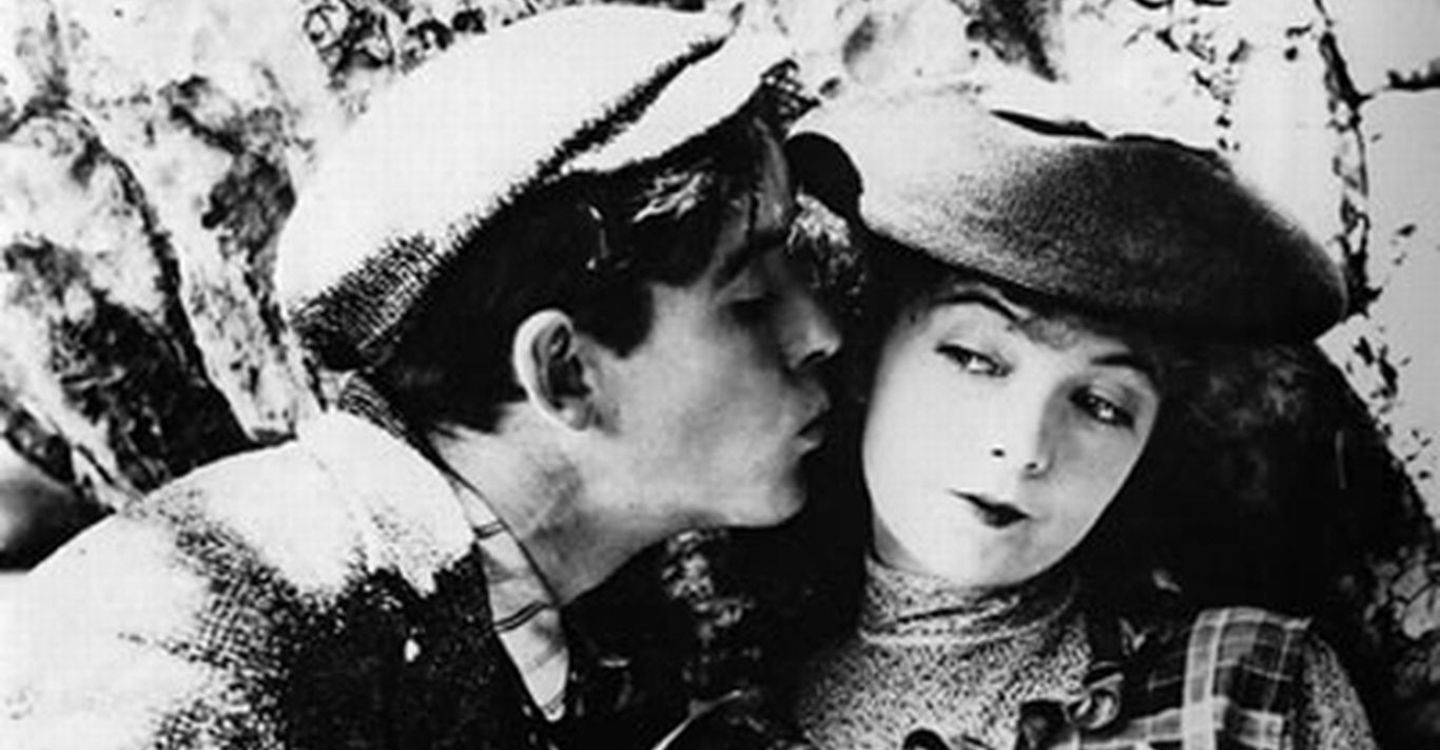
(D.W. Griffith, 1919) · Lillian Gish shines, in this early and moving entry in the canon of American film melodramas, as a big-hearted country girl who makes great sacrifices for the boy-next-door, only to see him end up in the arms of another woman. Tom Gunning praises the film as "nearly incandescent in its confessional and emotional power." Gish masterfully inhabits the different stages of infatuation, silent suffering, and dawning wisdom in a highly affecting performance. The screening will be introduced by Yuri Tsivian, Professor in Cinema and Media Studies, who is currently teaching a course on D.W. Griffith. Presented with live musical accompaniment by Sun Woo Park.
runtime: 87 min format: 16mm
4/24/2016 @ 7:00 PM
Daisy Kenyon
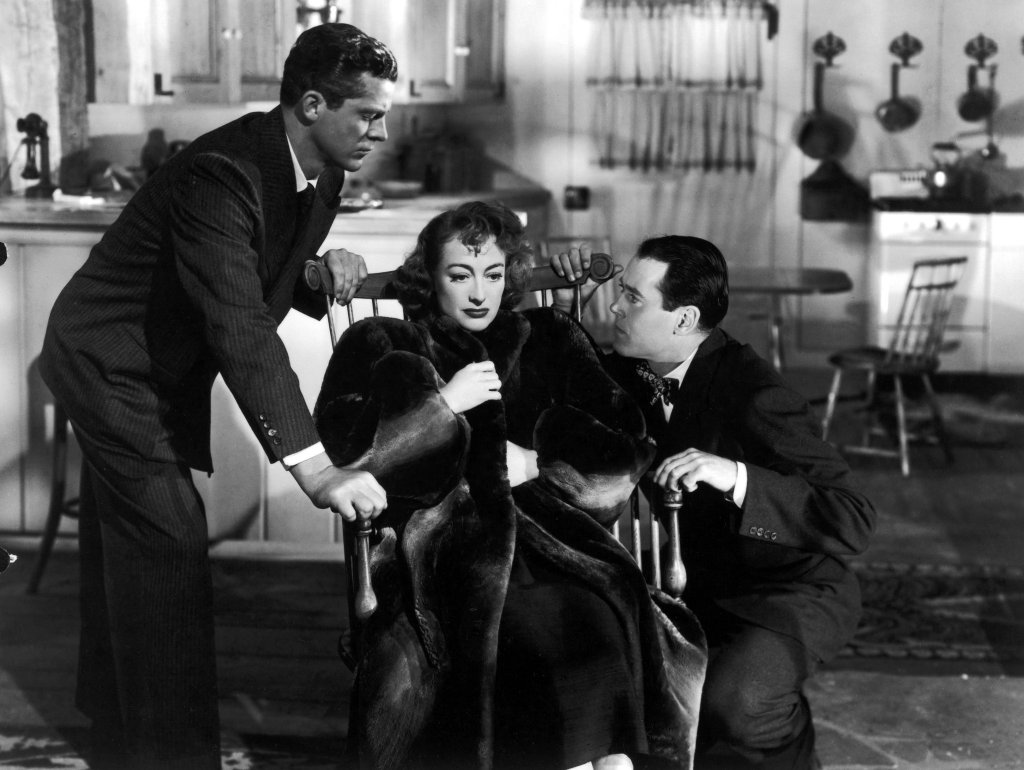
(Otto Preminger, 1947) · Joan Crawford stars as fashion designer Daisy Kenyon, who is in a dead-end relationship with Dan O'Mara (Dana Andrews), a married lawyer. It's only after Daisy sets her sights on the available and handsome but troubled war vet Peter Lapham (Henry Fonda), that her initial partner becomes unencumbered. The film's tagline "These Three Together...IN A LOVE ONLY TWO CAN SHARE!" might suggest a three-hanky weepie, but make no mistake--this love triad plays more like a noir study in levels of obsession and selfishness.
runtime: 99 min format: 35mm
5/1/2016 @ 7:15 PM
There's Always Tomorrow
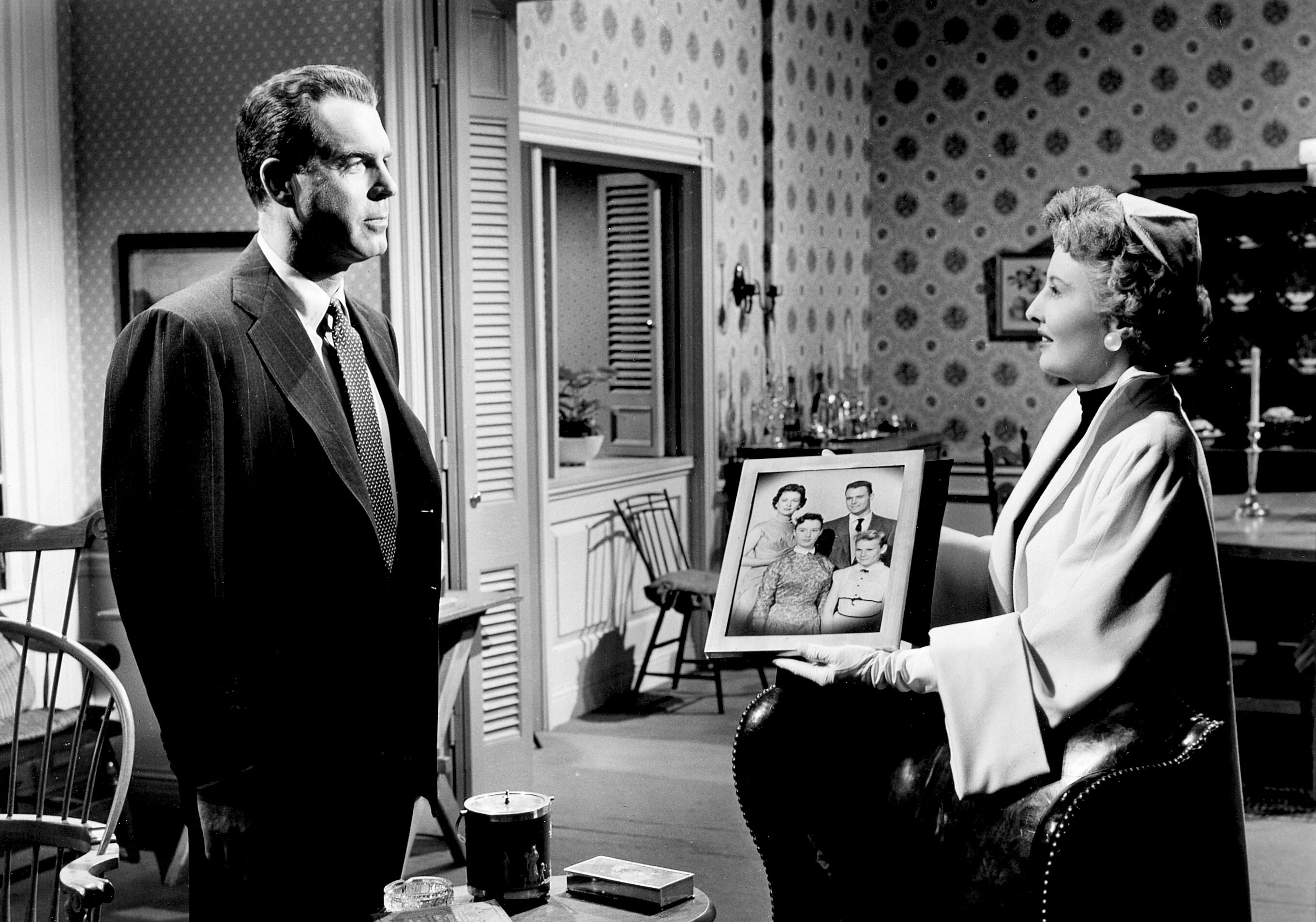
(Douglas Sirk, 1956) · "All of a sudden I felt desperate sitting in my own living room. I felt as though I were trapped in a tomb of my own making." Melodrama master Douglas Sirk crafts a domestic triangle filled with sharp irony, blistering dialogue, and many lyrical moments. Family man Clifford Groves (Fred MacMurray) leads a life of quiet desperation until old flame Norma (Barbara Stanwyck) returns to town and opens his eyes to just how exploitative and disappointing family life can be.
runtime: 84 min format: 35mm
5/8/2016 @ 7:00 PM
Written on the Wind
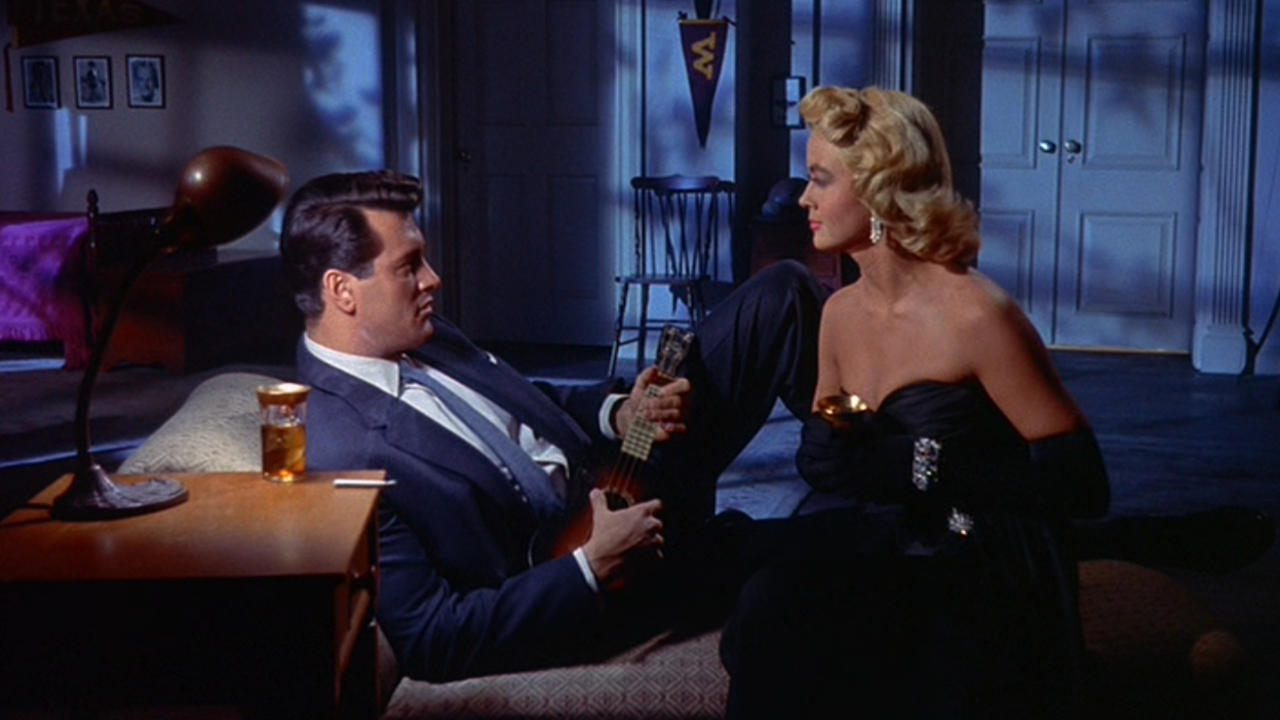
(Douglas Sirk, 1956) · Amplifying themes of thwarted desire and familial suffocation from There's Always Tomorrow, Sirk's masterpiece captures the sexual frustration of a Southern oil dynasty. Striking color parallels and eye-popping visual excess convey "the inner violence, the energy of the characters which can't break through." As for plot, Thomas Elsaesser said it best: "Dorothy Malone wants Rock Hudson who wants Lauren Bacall who wants Robert Stack who just wants to die."
runtime: 99 min format: 35mm
5/15/2016 @ 6:30 PM
Giant
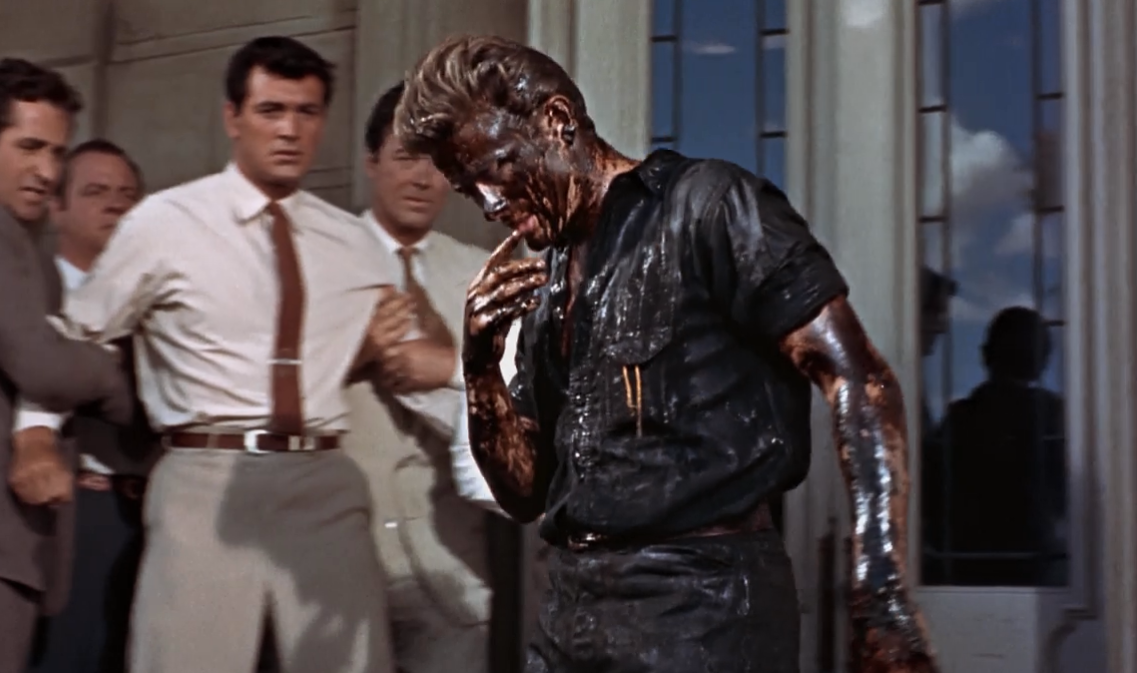
(George Stevens, 1956) · Rock Hudson, Elizabeth Taylor, and James Dean all give luminous performances in this exquisitely crafted, richly sun-drenched epic spanning three decades in the lives of ranchers and tycoons. Whirlwind passions and obsessive rivalries play out against the incendiary backdrop of big oil. Deftly directed by George Stevens, Giant is a gorgeous, fearless and sprawling portrait of the social evolution of early 20th-century Texas, and a pleasure to behold on the big screen.
runtime: 201 min format: 35mm
5/22/2016 @ 7:00 PM
Peyton Place
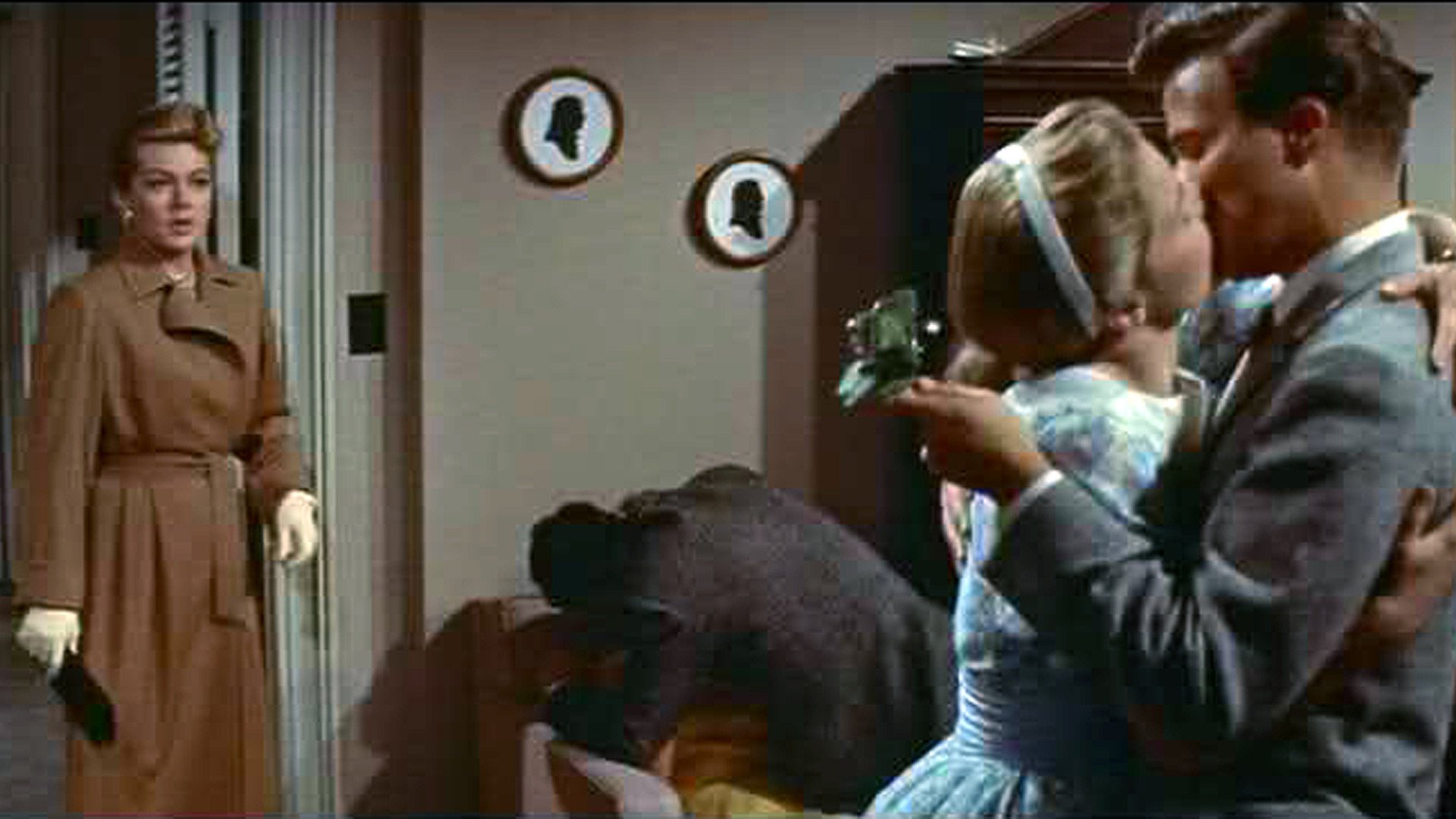
(Mark Robson, 1957) · The secrets are deep, dark, and closely guarded in the sleepy New England town of Peyton Place. This adaptation of a salacious 1950s bestseller (including incest, adultery, and skinny-dipping, to name just a few attractions) stars Lana Turner and a rogue's gallery of great character-actors, including Hope Lange and Russ Tamblyn. When a newcomer arrives, the shady pasts of the townspeople are revealed in one of the most "openly sexy" movies of its time.
runtime: 157 min format: DCP
5/29/2016 @ 7:00 PM
The Best of Everything
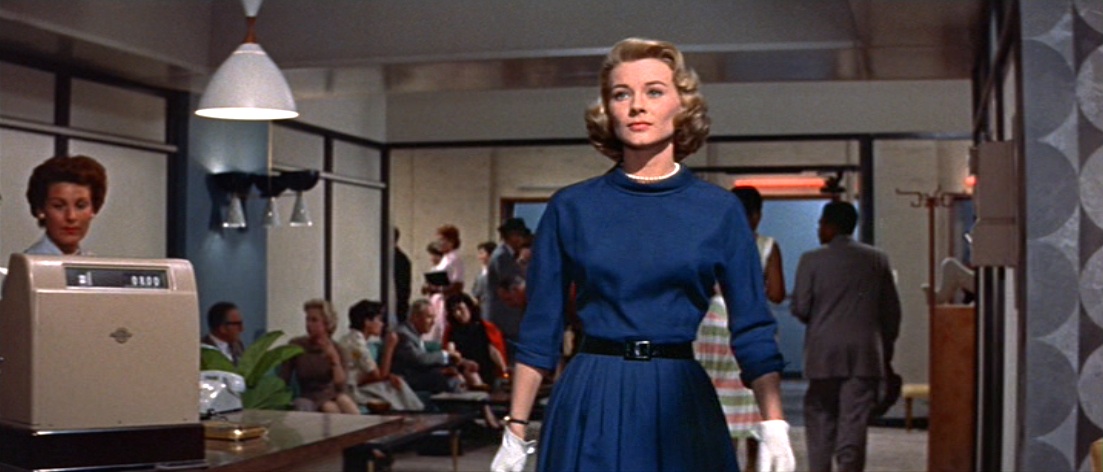
(Jean Negulesco, 1959) · Long before Carrie Bradshaw, sex was at the center of young women's on-screen lives in 1950s NYC. Set in the concrete jungle of a paperback publishing firm, this sensationalist glimpse into the professional lives and private loves of three friends struggling to balance career ambitions with the lure and folly of the opposite sex is a "potboiler in pearls." The Best of Everything trades equally in scandal and feeling, with a cameo from Joan Crawford!
runtime: 121 min format: DCP
6/5/2016 @ 7:00 PM
Polyester
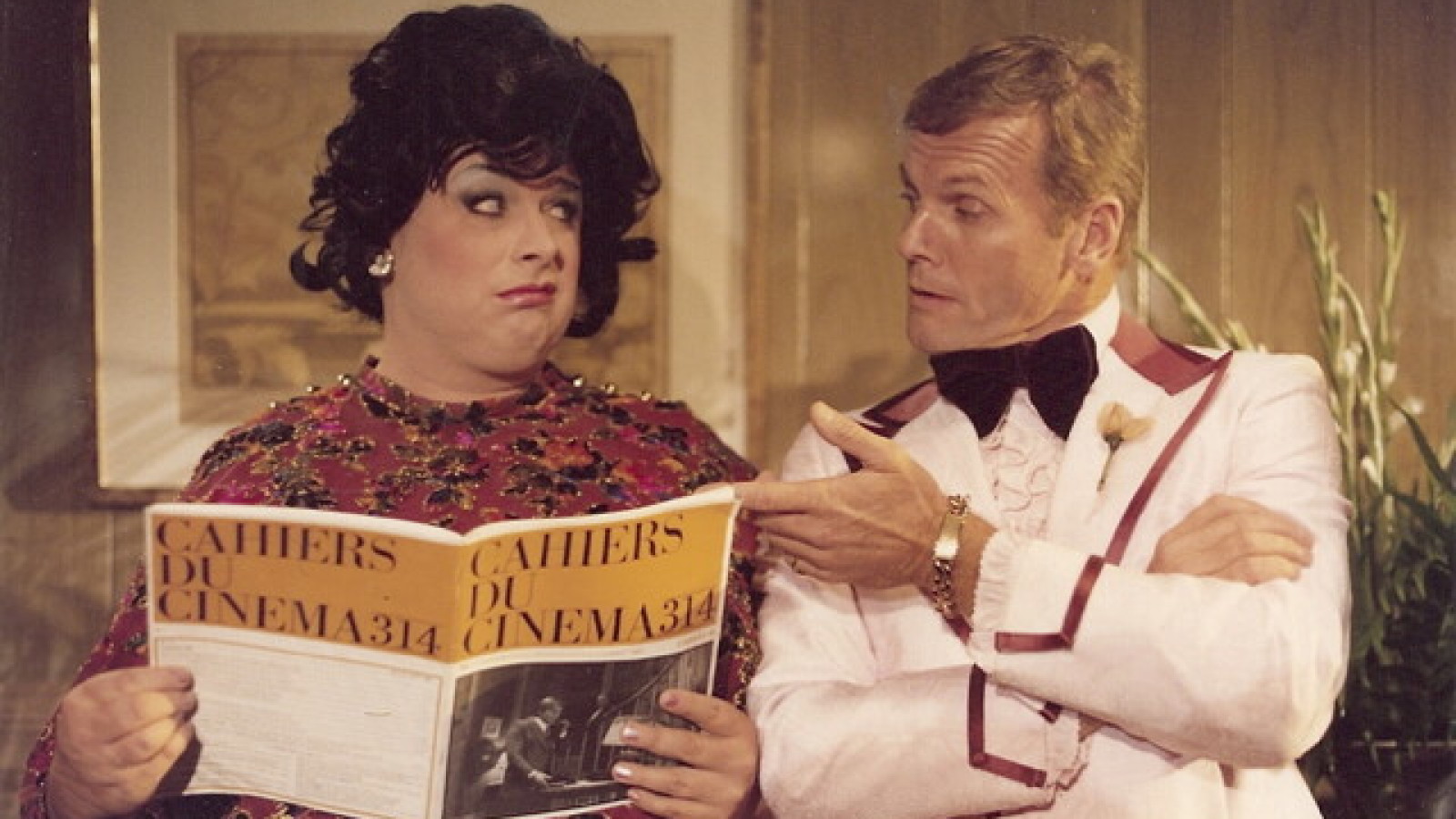
(John Waters, 1981) · Full of swaggering fun and undeniable naughtiness, John Waters takes the Sirkian melodrama to outrageous lengths. Divine stars as Francine Fishpaw, a repressed housewife who suffers to no end, but to great comedic effect. Will Francine find lasting happiness when she frolics with too-good-to-be-true art-theater maestro Todd Tomorrow (Tab Hunter)? Step into this Odor-ama, polyester world, with its cheery visuals and none-too-pleasant smells to find out!
runtime: 86 min format: 35mm



